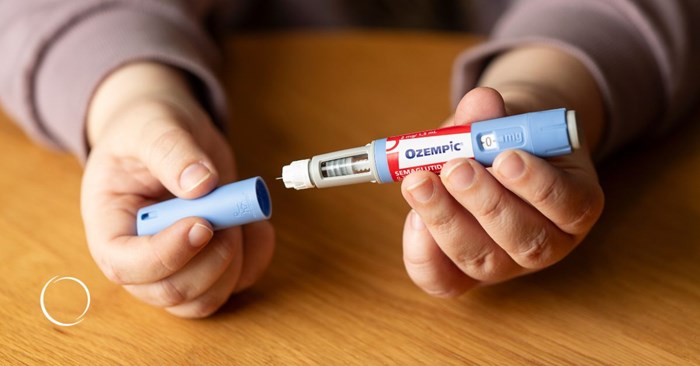Will you need a facelift after Ozempic? Here’s what you need to know

"Ozempic face" is a term that's gained traction on social media, particularly among celebrities and influencers, as they openly discuss the changes in their facial appearance after using the medication.
What does this mean for you if you're considering or already on this medication? Let's explore Ozempic and the potential side effects that might have you contemplating visiting a plastic surgeon.
What is Ozempic?
Ozempic is a brand name for the medication semaglutide, used primarily for treating type 2 diabetes. It belongs to a class of drugs known as GLP-1 receptor agonists, marketed under many different brand names. It works by mimicking a hormone that regulates insulin levels and, interestingly, also suppresses appetite.
This dual action not only aids in blood sugar control but often leads to significant weight loss in patients. While this might sound appealing, it can come with an unexpected side effect – changes in facial appearance, or what's now known as "Ozempic face."
On Instagram or TikTok, you might notice people sharing their stories of how Ozempic led to a rapid loss of facial fat, resulting in a more aged appearance. This sudden deflation, akin to letting the air out of a balloon, leaves many feeling like their face no longer reflects their youthful spirit.
The minimally invasive way
ASPS Member Surgeon Max Polo, MD, sheds light on this issue.
"We're doing facial filler procedures like injectable fillers to restore volume that's been lost in the face," Polo explained. "Sometimes we're doing autologous fat grafting using patients' own fat to restore the lost facial volume."
These minimally invasive fat-restoration procedures can be a game changer for those experiencing mild to moderate facial changes.
Polo also highlights the increasing demand for surgical and minimally invasive skin-tightening procedures, especially in the face and neck.
"We're doing neck skin tightening procedures with radiofrequency devices just to give a moderate amount of skin tightening when there's been a little bit of laxity," said Polo.
Considering a surgical facelift
Yet, he cautions there's a limit to what minimally invasive procedures can achieve.
"If you need more than that, then very often a surgical facelift procedure is the best thing," said Polo, particularly for those who've lost more than 40 or 50 pounds.
ASPS Member Surgeon Kristy Hamilton, MD, echoes Polo's concerns.
"When you lose substantial amounts of weight, you will lose it in your face as well," said Hamilton. "Some people think that Ozempic, specifically, does something to the face, but it would happen with any kind of substantial weight loss."
The unwelcome side of facial fat loss
While typically unwelcome on other parts of the body, fat is actually desirable for a youthful facial appearance.
"One comment we get after patients have been on Ozempic is that they feel like they've aged tremendously in their face," said Hamilton, suggesting options like dermal fillers or, for more extensive cases, fat grafting to add volume back where it's desired.
ASPS offers information on facelifts, detailing the procedure, recovery time and what to expect for those considering a more comprehensive approach. This information can be beneficial if you're exploring surgical options to address the more pronounced effects of weight loss on your facial structure.
Personalized approaches and restoring confidence
Ozempic can be a game-changer for weight loss and diabetes management, but it's essential to be aware of its potential impact on your facial appearance. Whether it's fillers, fat grafting, skin tightening or a facelift, there are options to help you feel like yourself again.
Remember, your journey is your own, and your approach to managing "Ozempic face" should be as personalized as your reasons for starting the medication. As you navigate your weight-loss journey, know that you're not alone – many have walked it before you, finding solutions to restore their looks and confidence.
To find a qualified plastic surgeon for any cosmetic or reconstructive procedure, consult a member of the American Society of Plastic Surgeons. All ASPS members are board certified by the American Board of Plastic Surgery, have completed an accredited plastic surgery training program, practice in accredited facilities and follow strict standards of safety and ethics. Find an ASPS member in your area.
